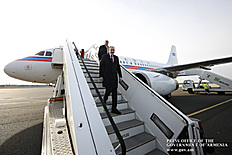 1670x1113px - 525 Kb
1670x1113px - 525 Kb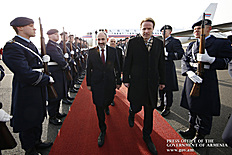 1670x1113px - 664 Kb
1670x1113px - 664 Kb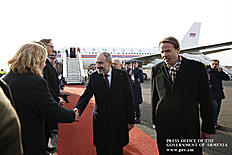 1670x1113px - 467 Kb
1670x1113px - 467 Kb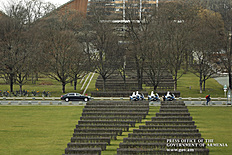 1670x1113px - 887 Kb
1670x1113px - 887 Kb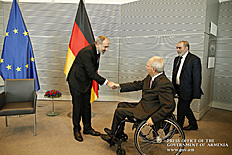 1670x1113px - 1 Mb
1670x1113px - 1 Mb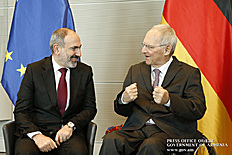 1670x1113px - 649 Kb
1670x1113px - 649 Kb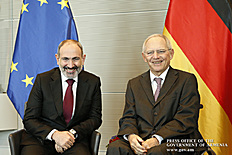 1670x1113px - 660 Kb
1670x1113px - 660 Kb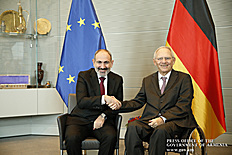 1670x1113px - 683 Kb
1670x1113px - 683 Kb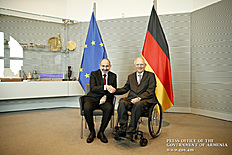 1670x1113px - 846 Kb
1670x1113px - 846 Kb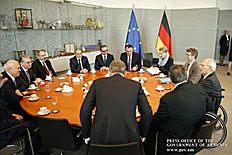 1670x1113px - 760 Kb
1670x1113px - 760 Kb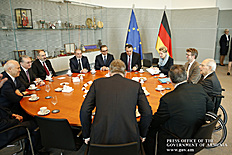 1670x1113px - 760 Kb
1670x1113px - 760 Kb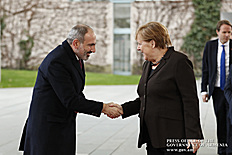 1670x1113px - 352 Kb
1670x1113px - 352 Kb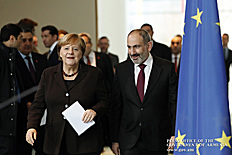 1670x1113px - 366 Kb
1670x1113px - 366 Kb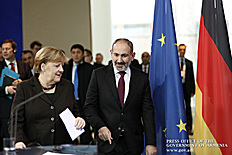 1670x1113px - 409 Kb
1670x1113px - 409 Kb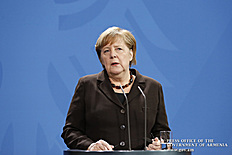 1670x1113px - 405 Kb
1670x1113px - 405 Kb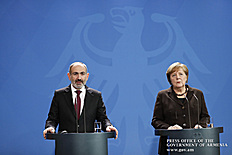 1670x1113px - 387 Kb
1670x1113px - 387 Kb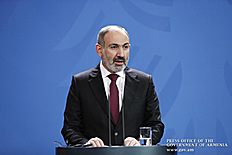 1670x1113px - 400 Kb
1670x1113px - 400 Kb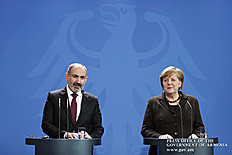 1670x1113px - 393 Kb
1670x1113px - 393 Kb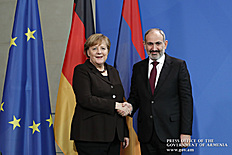 1670x1113px - 414 Kb
1670x1113px - 414 Kb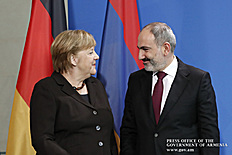 1670x1113px - 416 Kb
1670x1113px - 416 Kb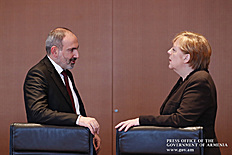 1670x1113px - 456 Kb
1670x1113px - 456 Kb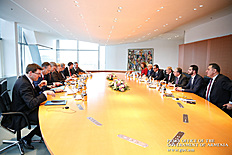 1670x1113px - 586 Kb
1670x1113px - 586 Kb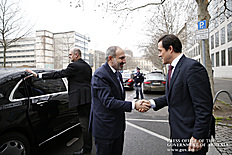 1670x1113px - 600 Kb
1670x1113px - 600 Kb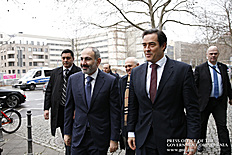 1670x1113px - 546 Kb
1670x1113px - 546 Kb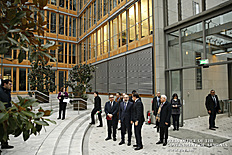 1670x1113px - 827 Kb
1670x1113px - 827 Kb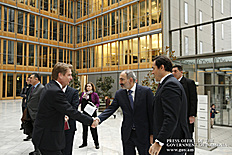 1670x1113px - 544 Kb
1670x1113px - 544 Kb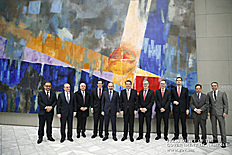 1670x1113px - 645 Kb
1670x1113px - 645 Kb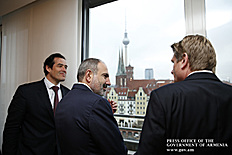 1670x1113px - 306 Kb
1670x1113px - 306 Kb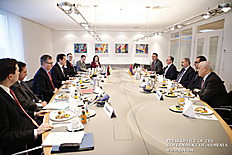 1670x1113px - 596 Kb
1670x1113px - 596 Kb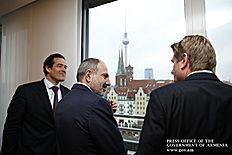 1670x1113px - 306 Kb
1670x1113px - 306 Kb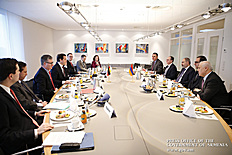 1670x1113px - 596 Kb
1670x1113px - 596 Kb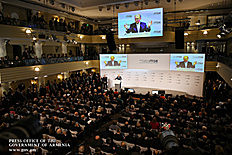 1670x1113px - 713 Kb
1670x1113px - 713 Kb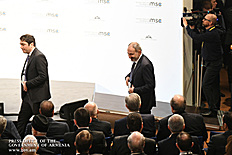 1670x1113px - 381 Kb
1670x1113px - 381 Kb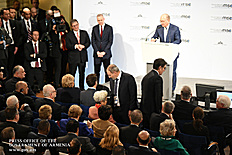 1670x1113px - 493 Kb
1670x1113px - 493 Kb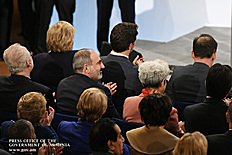 1670x1113px - 515 Kb
1670x1113px - 515 Kb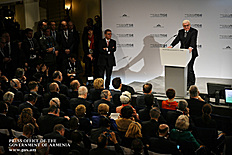 1670x1113px - 515 Kb
1670x1113px - 515 Kb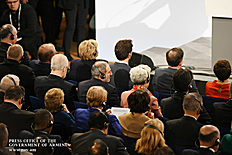 1670x1113px - 491 Kb
1670x1113px - 491 Kb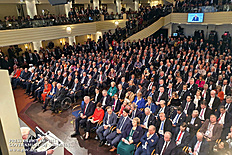 1670x1113px - 807 Kb
1670x1113px - 807 Kb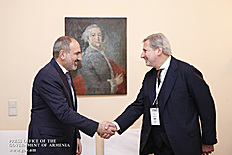 1670x1113px - 434 Kb
1670x1113px - 434 Kb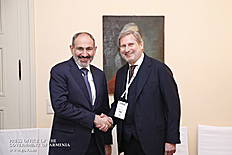 1670x1113px - 410 Kb
1670x1113px - 410 Kb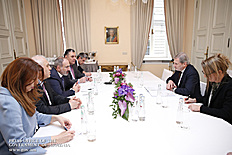 1670x1113px - 526 Kb
1670x1113px - 526 Kb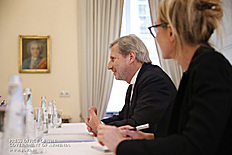 1670x1113px - 431 Kb
1670x1113px - 431 Kb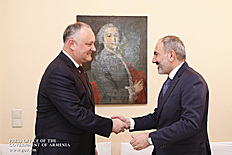 1670x1113px - 479 Kb
1670x1113px - 479 Kb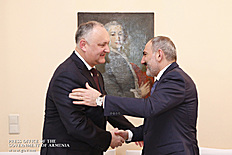 1670x1113px - 455 Kb
1670x1113px - 455 Kb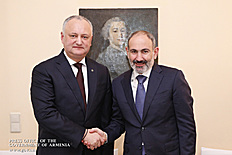 1670x1113px - 480 Kb
1670x1113px - 480 Kb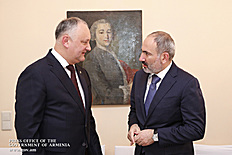 1670x1113px - 494 Kb
1670x1113px - 494 Kb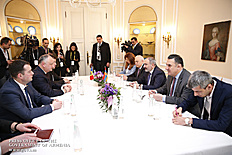 1670x1113px - 582 Kb
1670x1113px - 582 Kb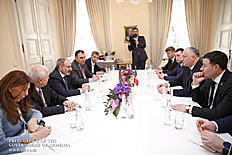 1670x1113px - 522 Kb
1670x1113px - 522 Kb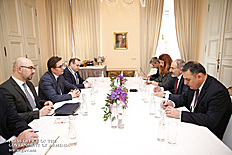 1670x1113px - 563 Kb
1670x1113px - 563 Kb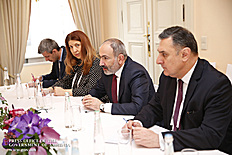 1670x1113px - 525 Kb
1670x1113px - 525 Kb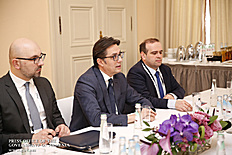 1670x1113px - 571 Kb
1670x1113px - 571 Kb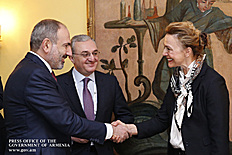 1670x1113px - 635 Kb
1670x1113px - 635 Kb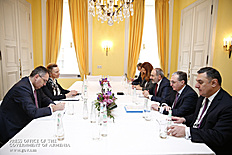 1670x1113px - 556 Kb
1670x1113px - 556 Kb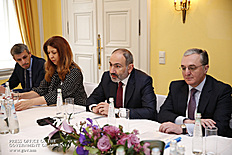 1670x1113px - 589 Kb
1670x1113px - 589 Kb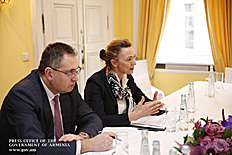 1670x1113px - 510 Kb
1670x1113px - 510 Kb 1670x1113px - 421 Kb
1670x1113px - 421 Kb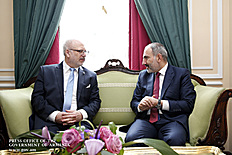 1670x1113px - 593 Kb
1670x1113px - 593 Kb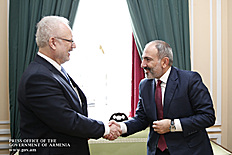 1670x1113px - 413 Kb
1670x1113px - 413 Kb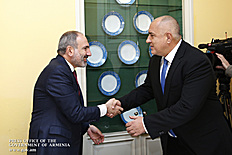 1670x1113px - 454 Kb
1670x1113px - 454 Kb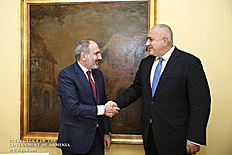 1670x1113px - 621 Kb
1670x1113px - 621 Kb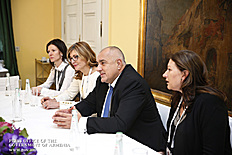 1670x1113px - 495 Kb
1670x1113px - 495 Kb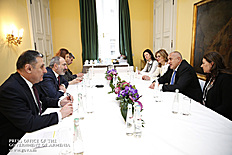 1670x1113px - 485 Kb
1670x1113px - 485 Kb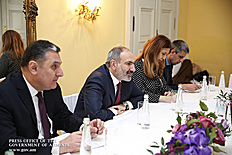 1670x1113px - 531 Kb
1670x1113px - 531 Kb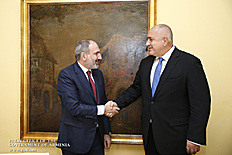 1670x1113px - 621 Kb
1670x1113px - 621 Kb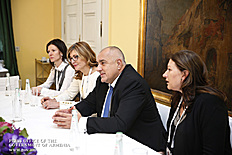 1670x1113px - 495 Kb
1670x1113px - 495 Kb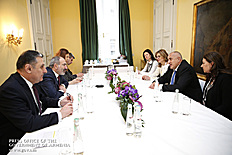 1670x1113px - 485 Kb
1670x1113px - 485 Kb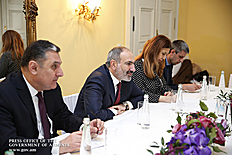 1670x1113px - 531 Kb
1670x1113px - 531 Kb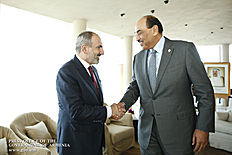 1670x1113px - 378 Kb
1670x1113px - 378 Kb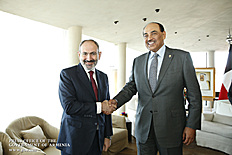 1670x1113px - 403 Kb
1670x1113px - 403 Kb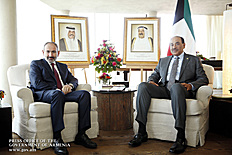 1670x1113px - 573 Kb
1670x1113px - 573 Kb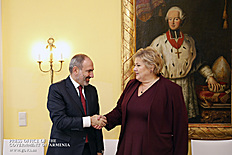 1670x1113px - 496 Kb
1670x1113px - 496 Kb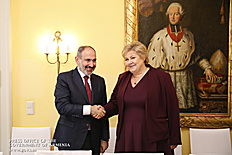 1670x1113px - 518 Kb
1670x1113px - 518 Kb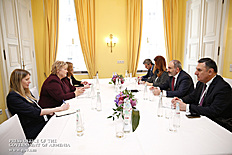 1670x1113px - 489 Kb
1670x1113px - 489 Kb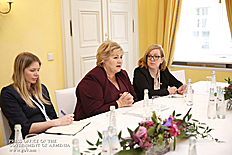 1670x1113px - 449 Kb
1670x1113px - 449 Kb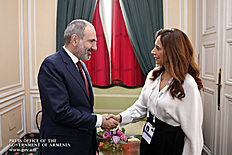 1670x1113px - 626 Kb
1670x1113px - 626 Kb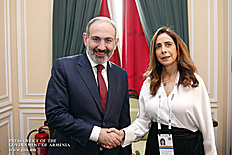 1670x1113px - 593 Kb
1670x1113px - 593 Kb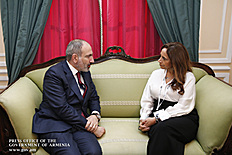 1670x1113px - 510 Kb
1670x1113px - 510 Kb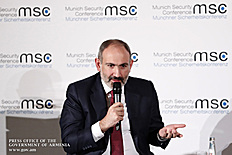 1670x1113px - 320 Kb
1670x1113px - 320 Kb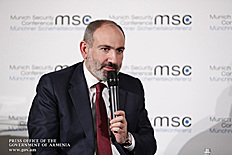 1670x1113px - 347 Kb
1670x1113px - 347 Kb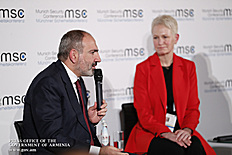 1670x1113px - 365 Kb
1670x1113px - 365 Kb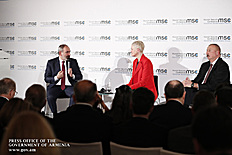 1670x1113px - 366 Kb
1670x1113px - 366 Kb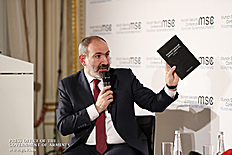 1670x1113px - 403 Kb
1670x1113px - 403 Kb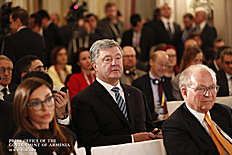 1670x1113px - 443 Kb
1670x1113px - 443 Kb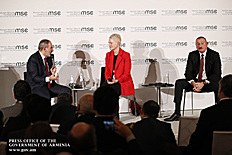 1670x1113px - 386 Kb
1670x1113px - 386 Kb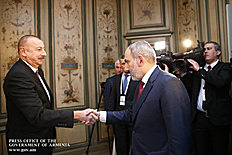 1670x1113px - 614 Kb
1670x1113px - 614 Kb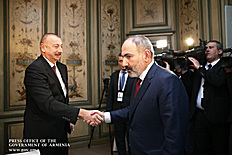 1670x1113px - 394 Kb
1670x1113px - 394 Kb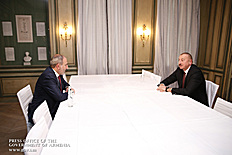 1670x1113px - 437 Kb
1670x1113px - 437 Kb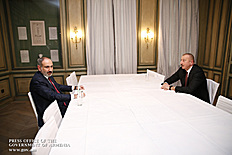 1670x1113px - 448 Kb
1670x1113px - 448 Kb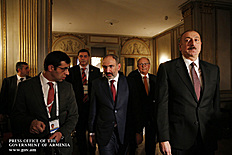 1670x1113px - 625 Kb
1670x1113px - 625 Kb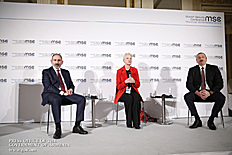 1670x1113px - 414 Kb
1670x1113px - 414 Kb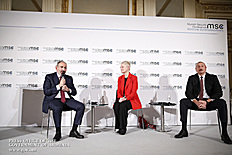 1670x1113px - 578 Kb
1670x1113px - 578 Kb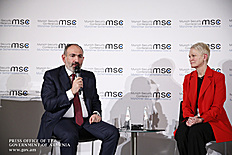 1670x1113px - 501 Kb
1670x1113px - 501 Kb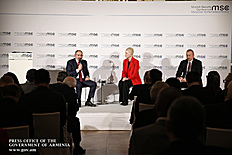 1670x1113px - 431 Kb
1670x1113px - 431 Kb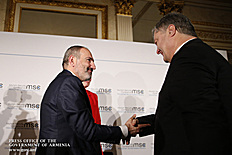 1670x1113px - 439 Kb
1670x1113px - 439 Kb
more 91 photos
Prime Minister Nikol Pashinyan has arrived in the Federal Republic of Germany on a working visit. After the welcoming ceremony, held at Tegel Airport in Berlin, the Prime Minister left for the German Bundestag where he is to meet with Bundestag President Wolfgang Schäuble.
The Prime Minister next will meet with German Chancellor Angela Merkel in Berlin. The meeting will be followed by a joint press conference for mass media representatives.
Later in the day, the Premier will meet with a group of German scientists and experts at the Friedrich Ebert Foundation of the Social Democratic Party.
* * *
Prime Minister Nikol Pashinyan met with German Bundestag President Wolfgang Schäuble in Berlin on the sidelines of his working visit to Germany.
Welcoming the Armenian Premier to his country, the Bundestag President was pleased to state that the pledge made exactly a year ago was fulfilled: The Bundestag has ratified the EU-Armenia Comprehensive and Enhanced Partnership Agreement (CEPA). Wolfgang Schäuble expressed confidence that Nikol Pashinyan’s visit to Berlin will impart fresh impetus to the furtherance of Armenian-German relations.
Thankful for CEPA ratification, Prime Minister Pashinyan said it will facilitate the reform process in Armenia. “Armenia has recorded tangible progress in its international ratings as regards democracy. Our government sets another important goal in developing relationships with Germany. We are interested in your country’s experience as a long-established and well-organized parliamentary state, given the fact Armenia embraced the semi-presidential system of governance in 2018,” the Prime Minister said, highlighting the importance of German know-how from the perspective of building a more functional system of governance in our country.
Nikol Pashinyan underscored that his government’s ultimate goal is to ensure that democracy is irreversible in Armenia, supported by an independent and reliable judicial system. The Prime Minister gave details of the decision to hold a referendum on constitutional reforms this April 5. Nikol Pashinyan invited German Bundestag to send observers to monitor the upcoming referendum.
The Bundestag President voiced support for the judicial reform and the democratic process underway in our country. He advised that they are closely following Armenia’s domestic developments.
Taking the opportunity, the interlocutors touched upon the development of cooperation between the Eurasian Economic Union (EAEU) and the European Union. Wolfgang Schäuble expressed hope that Armenia and Prime Minister Pashinyan personally will continue to promote interactions between the two Unions.
The Head of the Armenian Government stressed the need to look for new partnership formulas between the EAEU and the European Union, noting that the issue is being discussed within the EAEU.
* * *
Today Prime Minister Nikol Pashinyan and FRG Chancellor Angela Merkel met in Berlin.
Welcoming Armenian Prime Minister’s visit, the German Chancellor emphasized its importance as she was confident that the visit came as an opportunity to discuss issues on the bilateral agenda. Mrs. Merkel went on to assure that her government will continue to back the Armenian side in an effort to push ahead with the ongoing democratic reforms.
Coming to economic developments, Prime Minister Pashinyan noted that high growth rates had been recorded in various sectors of the economy. The Premier said his government eager to see broader involvement of German capital in Armenia’s economy, and invited German companies to take part in investment projects in Armenia.
The parties discussed a broad range of issues, including cooperation in the fields of industry, infrastructure, tourism, information technology, education, etc. Prime Minister Pashinyan referred to the upcoming April 5 referendum on constitutional changes in Armenia. He pointed out that the Government is going to invite international observers to monitor the referendum.
On behalf of her government, Angela Merkel expressed support for Armenia’s judicial reform. She emphasized the importance of those steps taken by the Armenian government to develop democratic institutions.
* * *
Prime Minister Nikol Pashinyan, who is in Berlin on a working visit, called at the Friedrich-Ebert Foundation (Friedrich-Ebert-Stiftung) where he had a meeting with German scientific and expert circles, referred to as “Long-Term Cooperation under New Symbols: Armenia-Germany Relations.”
Foundation Co-Chair, Board Member Klara Geywitz thanked the Prime Minister for his willingness to visit the Foundation and introduce the ongoing transformations to German expert circles.
“Armenia has always been at the crossroads of different cultures, but has maintained its identity. Today, Armenia plays an important political role. We see that it has good neighborly relations with Russia, it is a member of the EAEU and has signed the CEPA with the EU,” Klara Geywitz said, noting that Germany has good relations with Armenia and considers it important to deepen cooperation.
Klara Geywitz noted that Armenia can become an attractive country for foreign investors. “The new government faces the old burden. Change is not easy, and we can contribute to those developments,” she said, noting that the foundation has a representation in Armenia and has supported Armenia in different activities.
In his speech, Prime Minister Pashinyan touched upon the positive developments in the Armenian economy, government’s reform agenda, including judicial reforms and other topics.
“Dear friends from the Friedrich Ebert Foundation,
Dear Ms. Klara Geywitz,
Ladies and Gentlemen,
I am pleased with this opportunity. Exactly one year ago I paid my first official visit to Germany, and I am happy that our relations have gained such a strong momentum. Last year, I had a meeting at the Konrad Adenauer Foundation, and today it is my honor to speak at the Friedrich Ebert Foundation. Thus, we can state that over the past twelve months I had a couple of opportunities to communicate with the experts of two prominent German think-tanks. Thank you again for such a nice opportunity.
Yes, a non-violent velvet revolution occurred in Armenia in 2018 under the motto of love and solidarity. But the main context was democracy, the rule of law, human rights, and today it continues to be our primary agenda. It is important to record what has happened in the post-revolutionary Armenia over the last one and a half years and what results we have at this point of time. 2019 was a very important year in this respect as it was the new government’s first full year in office.
Extraordinary parliamentary elections were held in the Republic of Armenia in 2018, and these were the first parliamentary elections, the results of which were not disputed by anyone either de jure, or de facto. Prior to that, all parliamentary elections in the Republic of Armenia had been contested and heavily criticized by international observers. As regards the latest elections, neither the Armenian civil society, nor the international community questioned the outcome parliamentary elections, stating that the polls had been held in line with international standards. This was the first and foremost result of the revolution.
This trend continued in 2019, when the Republic of Armenia made progress in political and human rights ratings lists. In particular, the Republic of Armenia has made progress in the world index of democracy, and the global index of freedom of speech. The Republic of Armenia ranks 8th in terms of Internet freedom, and shares this position with France. We have made tremendous progress in our perception of corruption and this process will continue unabated in the Republic of Armenia.
I would like to emphasize that 2019 was a landmark year for Armenia in economic terms. First, two out of three major credit rating agencies - Moody’s and Fitch - raised Armenia’s rating; High-demand and low-interest Eurobonds were issued. Besides, both the World Bank and the International Monetary Fund drastically improved Armenia’s economic outlook forecast.
Today we can state that the Republic of Armenia enjoys the fruits it should have enjoyed after the revolution. Of course, I do not mean that everything is perfect in the Republic of Armenia, but I can say that we strive for perfection and undertake concrete steps to hat end.
Anyway, with your permission, I want to talk about some economic results. We expect to state a 7.9-8% economic growth as of late 2019, and according to the International Monetary Fund, this is the best indicator in the European region, including the former Soviet republics.
Inflation was as low as 1.4% in 2019. In addition, unemployment fell by 2.2 percent. Exports increased by 9 percent. We have returned USD 105 million to the state budget as a result of the fight against corruption. But I must say that both our society and I are dissatisfied with this figure because we believe that the fight against corruption should be much more effective in the Republic of Armenia.
In relation to the fight against corruption, I would like to emphasize one of the nuances, which is important for assessing the phenomena occurring in Armenia and for assessing the reality. It is a common understanding that by coming to power after a revolution, any new government usually starts fighting against former corrupt authorities. But we say that we do not have past and present corruption. Since 2018, several deputy ministers have been appointed by me. Just a week ago the Head of the Urban Development Committee was arrested on a corruption charge. He is the highest-ranking government official ever arrested in the history of the Third Republic.
In parallel, a major smuggling case was exposed involving Customs Committee officials. And I state this as an important nuance to demonstrate that the fight against corruption has not been and will never be a tool for dealing with political problems.
I have declared on several occasions that the incumbent officials are more dangerous than the former ones simply because they are acting today, especially after sweeping political changes in Armenia and their actions are far more dangerous.
Back to the list of our economic achievements, I would like to emphasize that in 2018-2019 the state budget revenues increased by more than USD 1 billion in the Republic of Armenia. This was done within just one and a half years in 2018-2019.
There is another gratifying fact, namely we boasted a double-digit growth in tourism during the past two years. In 2018, tourism grew by 12 percent and in 2019 by 15 percent. I am confident that this trend will continue, especially considering that the budget airlines such as Ryanair that entered Armenia’s market not long ago will soon launch direct flights from Berlin to Yerevan and from Memingham to Gyumri, which is the second largest city of Armenia.
I am convinced that the growth rate of tourists from Germany will not only be maintained but also increased. It is very important to note the ideology underlying the economic policy of the Government of the Republic of Armenia today. In general, the revolution was anchored on the slogan we had been voicing for many years. We want every citizen of Armenia to abide by the following motto: “The future of Armenia depends on one person, and I am that person.”
After the political revolution we adopted an economic revolution agenda and put the same concept behind the economic revolution, encouraging our citizens to engage in economic activity and trust their own power on the way to securing their personal well-being and the well-being of our country.
And we urge our citizens and potential foreign investors to engage in economic activity in the Republic of Armenia in order to get richer and enrich others. We introduced this concept in 2018 right after the revolution.
There was a great deal of pessimism about its economic impact, and 2019 was crucial in this respect, because it showed that the economic revolution is possible when every citizen is encouraged to believe in his or her own power and their creative talent with the government taking steps to provide the conditions necessary for developing their creative skills.
That is the core of our current economic policy, and we say that individual effort is the key factor that will ultimately lead to economic revolution in Armenia that has already begun in our conviction.
Education is of paramount importance in this respect. In the near future, I am going to publish our strategic vision by 2050. It will feature a point about education that I find very important, which stipulates the need for making education a national lifestyle in the Republic of Armenia.
What does it mean? Usually in many places or in many cases education is understood as pre-school, school, university education, but we believe that education in the Republic of Armenia should be changed because we believe that education is a process that one must live throughout life.
As Prime Minister, I myself have had the opportunity to say several times that I do so because the educational level, the intellectual level, the professional level of each of us must be higher each day than the previous day. And this is the model we want to put at the base of our society.
Moreover, by saying education we do not understand knowledge, since we think that even the locksmith must improve his skills every day. The MP must be a better MP every day than the previous day, the PM should be a better PM every day than the day before, and this is possible when each of us realizes that the passion in our daily work must be an integral and indivisible part.
Dear attendees, I would like to talk about the most pressing issue on our agenda, because there is one area where we cannot boast of great success over the last one and a half years, and that is the judicial system, because our current judicial system, including the Constitutional Court, was formed in the old political context There has been no major change since the velvet non-violent popular revolution of 2018 and one of the reasons is that we have been and continue to be led by the idea of moving forward with institutional steps, so that our actions are not elemental, driven by inertia, considering that we should generate benefits instead of doing any harm, because unfortunately our country used to live under a government-controlled judicial system for a long time. Our task is not to establish total control over the judicial system, but to create guarantees that there is a truly independent and impartial judicial system in the country.
And in this respect, it is extremely important for us to implement a judiciary reform, including with the support of the European Union. We have adopted a judicial reform strategy and an anticorruption strategy. We are working closely with our European partners and we highly appreciate their support and technical, financial and practical assistance.
However, the most important news for the current period is the developments concerning the Constitutional Court of the Republic of Armenia. Recently the Armenian parliament overwhelmingly adopted a decision to hold a referendum on the Constitutional Court on April 5, 2020. The President of the Republic has already signed the decision to hold a referendum and we will have a referendum on the issue of the Constitutional Court on April 5, 2020.
Now, I would like to dwell on the reasons behind that decision and on what the constitutional referendum is about. In 2015, a new Constitution was adopted in the Republic of Armenia, which entered into force on April 9, 2018. The applicable Constitution ushers in a completely new model of the Constitutional Court, which had been widely endorsed and praised by our international partners.
What is meant for this model? It is envisaged that the Constitutional Court should be more balanced and the Constitutional Court should be formed on the following principle: three candidates shall be nominated by the President of the Republic, the Government and the General Assembly of Judges and the election of those candidates must take place in Parliament. This is the first important principle, namely that the three different branches of government must nominate candidates and the parliament is to elect new members.
The next important principle is that Constitutional Court judges should be in office for a period of 12 years. The same person can be elected as a judge of the Constitutional Court only once. The third important principle is that the President of the Constitutional Court is elected by the Constitutional Court for a term of six years. At the same time, the same person may not serve more than once, that is, for more than 6 years as President of the Constitutional Court. This is the model envisaged under the current Constitution.
Question: Do we have such a Constitutional Court today? No, we do not have such a Constitutional Court today because there were legal manipulations just 19,20,30 days before the new Constitution came into force.
Question: When will we have a Constitutional Court provided for by the new Constitution, if we do not change anything? Not earlier than in 2035. Why, because the representatives of the previous government have elected a President of the Constitutional Court who should serve until 2035?
That is, contrary to the applicable Constitution, no Constitutional Court President election will be held in Armenia over the next 18 years. That is, this is roughly the same if we are to make legislative changes now, especially since we have a constitutional majority in parliament and decide that there will be no parliamentary elections and the prime minister will not change in Armenia by 2035, although the Constitution provides that parliamentary election should be held every five years.
Next: While the Constitution provides that Constitutional Court judges may serve for 12 years, most members of our Constitutional Court, if nothing changes, will have a term of 25-30 years as a result of these legislative manipulations. This is simply an unacceptable situation for us, because the existence of such a Constitutional Court generally calls into question the whole agenda of institutional reforms in the Republic of Armenia, because now we have a politicized and partisan constitutional court, and that party is the one that led the Republic of Armenia to corruption.
We cannot tolerate such a situation and what have we done? We have raised the issue of a referendum, a popular referendum, and we suggest the following: The powers of those members of the Constitutional Court whose office does not comply with the terms and conditions set forth in the present Constitution should be terminated and we shall have a new constitutional court in conformity with the applicable Constitution.
What does this mean. This means that in the event of a successful referendum, the President of the Republic, the Government and the General Assembly of Judges will nominate candidates for the Constitutional Court, and we will have a Constitutional Court in accordance with our Constitution. Meanwhile, the judicial code reform is on the parliament’s agenda, according to which all newly appointed judges, including candidates for the Constitutional Court, will take a past record test at the Corruption Prevention Commission which, by the way, has been formed not so long ago. The Commission for Prevention of Corruption is currently headed by a candidate nominated by the opposition. I think this is an important fact to record, and this committee, after passing a law, which I am sure will pass before it, will check the suitability of all the candidates for judges, because our legislation requires that Constitutional Court members should be impartial and non-partisan. And we must ensure such conditions.
Dear Colleagues,
I would like to underscore that the European Union has grown into Armenia’s main partner over the last 1.5 years in implementing the government’s reform agenda, and this is very important, but I would like to highlight Germany’s particular role in this process.
As I stated above, Armenia shifted from the system of semi-presidential government system to a parliamentary system in April 2018. And we see Germany as a parliamentary-governed country where the success of this system of governance has been proven and it is very important for us to have the opportunity to study Germany’s experience and master the system of checks and balances that can help us build an irreversible democracy, an independent judicial system, which will stimulate economic development and a competitive economy
In this respect, I consider our cooperation with Germany important and I am very happy for this opportunity. Of course our reform agenda is actually outlined and described in the Comprehensive and Enhanced Partnership Agreement signed with the EU. And we will consistently carry out the reforms provided for in this agreement. I would like to say that economic cooperation with the European Union is very important to us and Armenia, being a member of the EAEU, attaches great importance to the establishment of economic and political cooperation between the EAEU and the European Union.
Last year Armenia presided in the EAEU and it was a successful presidency. Armenia is an advocate of economic and political cooperation between the EAEU and the EU, and we will do our utmost to make that cooperation work. But I would also like to say that the Republic of Armenia can offer a good environment for foreign investments, including German and European investments, on the way to a 180-million-strong consumer market. And I would also like to emphasize that Armenia-make products can be exported to the EAEU without customs clearance.
Dear Colleagues,
Let me once again thank you for this opportunity, and I want to stress that democracy in the Republic of Armenia is irreversible. The fact that democracy came to the Republic of Armenia through a non-violent, velvet, popular revolution that, in its form and content, was very similar to the revolutions that occurred in Eastern Europe in the late 1980s and early 1990s, was nonetheless peculiar.
And I want to make another important point concerning the processes underway in Armenia. No external forces were involved in the political changes and processes in Armenia. It was a matter of principle for our political team, and during the revolution we did not allow any foreign political force to get involved in the process. And why am I emphasizing this to show that these processes were driven by our people’s long-cherished aspirations, I mean democracy, the rule of law, the protection of human rights, good governance and overall transparency. Democracy is a deep-seated value in Armenia: it goes in tune with our people’s perceptions, mentality and culture.
This is the most important guarantee that the Republic of Armenia will continue to be a democratic state, and I hope that all our international partners will support our country and our people in pursuit of this crucial process and in strengthening institutional democracy in Armenia. Thank you.”
The Prime Minister then answered the questions of interest to the audience, including the ones asked by Azeri experts regarding the Nagorno-Karabakh conflict. Nikol Pashinyan stressed that unilateral actions cannot help resolve the Karabakh issue.
“Even assuming that the Armenian government takes one-sided action, it will not solve the problem; on the contrary, it will aggravate it. Azerbaijan is talking about territories, but it is important to understand that we are talking about security.
Azerbaijan is a country where people are being heroized for killing an Armenian… You may know that as early as in 2004, NATO invited officers from Armenia and Azerbaijan to participate in a peace program. They were supposed to attend joint seminars in Budapest, but the Azeri officer killed the Armenian officer who was asleep. After that, a trial was held in Budapest and the Azerbaijani officer was sentenced to life imprisonment. Some time later the Hungarian government decided to extradite the officer to Azerbaijan. And upon arrival, the President of Azerbaijan signed a decree to set the officer free. The latter was granted a flat and a higher military rank. He was encouraged and heroized by mass media outlets.
This is just the reason behind the security zone, which is talked that much about in Azerbaijan. Azeri shelling kept civilians, including children, in cellars for several years.
And when it comes to territory, we perceive it as security. And first of all, not the Republic of Armenia, but the Republic of Karabakh shall never compromise its own security like any other country. That is, the solution to this situation can only be linked to security guarantees that are inexistent at this point and never used to be provided on the part of Azerbaijan. The absence of security guarantees has led to the current situation.
As for my statement “Karabakh is Armenia and that is all,” please note that it has a clear and specific explanation. We have said that we will perceive Azerbaijan’s attack on Karabakh as an attack on the Republic of Armenia. The Republic of Armenia is the guarantor of Karabakh’s security. And this says everything.
And I want to make it clear that we have not seen any constructive step on the part of Azerbaijan in the negotiation process over the past one and a half years, but on the other hand, I would like to appreciate the situation we have achieved with President Ilham Aliyev since September 2018, when we first met. I mean that tensions in the region have been at historic low ever since. And I hope that by means of constructive discussions we will not only be able to maintain this relative stability, but also move forward towards a legal settlement.”
* * *
Prime Minister Nikol Pashinyan met with German Chancellor Angela Merkel in Berlin. After welcoming Prime Minister Pashinyan and the Armenian delegation, the leaders of the two countries made statements to mass media representatives in anticipation of their private talks.
FRG Chancellor Angela Merkel:
“I am pleased to once again welcome to Germany Prime Minister of the Republic of Armenia Nikol Pashinyan. We had an opportunity to meet last year, and the ties between our two countries have intensified ever since. Today we will talk about the furtherance of our bilateral relations.
You know that Armenia has seen many changes owing to the new Prime Minister. There is parliamentary democracy, elections have been held. Fundamental changes are being implemented, including the judiciary reform, which is done in cooperation with the Venice Commission. It is not an easy process, but we wish Armenia every success in those efforts.
As I noted above, our relations have intensified. When I visited Armenia, I happened to be at the TUMO Center in Yerevan and was very excited about it. An agreement has been signed on establishing a similar center in Germany, and we will be able to inaugurate it in Berlin this fall.
We held an economic forum last October, which ushered in a new vector in German-Armenian relations. We appreciate Armenia’s close cooperation in the peacekeeping mission in Afghanistan.
Armenia has signed an agreement with the European Union; at the same time it is a member of the Eurasian Economic Union, and we still have to work hard for the cooperation of the two unions.
High on the agenda of today’s discussion is the settlement of the Nagorno-Karabakh conflict. We will have to work hard and long in order to have a breakthrough in Armenian-Azerbaijani relations.
Mr. Prime Minister is due to follow up his trip to Munich. We are grateful and happy to host you here today.”
RA Prime Minister Nikol Pashinyan:
“Madam Chancellor,
Dear mass media representatives,
Ladies and Gentlemen,
It gives me great pleasure to state that we have been meeting with Madam Chancellor for the third time during my tenure over the past one and a half years. This testifies to the high level of our relations.
Germany is a close friend and a reliable partner for Armenia and we feel the power of that friendship both emotionally and practically. Germany is a powerful bridge that connects Armenia with the European Union, European civilization and culture.
Today I can state with confidence that our friendship is based on shared values. They unite our two countries and serve as a strong basis for multifaceted cooperation.
I am pleased to note that we are likewise bound by mutually beneficial cooperation and business programs. We are prepared to do our best to further strengthen and advance the ongoing cooperation. In a short while, we will have the opportunity to discuss with Chancellor Merkel our cooperation agenda.
I would like to make a point of Germany’s continued support for Armenian reforms. We are grateful for the moral, political, technical and financial support provided by Germany and the European Union. It is crucial for us to ensure the irreversibility of democracy in our country, strengthen the rule of law through drastic reform of economic and political institutions.
I would like to highlight another key aspect of our interest in having close relations with Germany. You may know that Armenia shifted to a parliamentary system of government in 2018, while Germany has served a successful model as a highly effective parliamentary government, strong with clear-cut counterbalancing mechanisms, where democracy has not been questioned for quite a long time now. In this regard, our relations with Germany are extremely important. We are going to talk about Armenia’s latest developments and our reform agenda, including the imperative of making democracy institutionally strong and irreversible in Armenia.
In general, evoking the ongoing cooperation with Germany, I would like to highlight the activities carried out by the German International Cooperation Association (GIZ) and the German Bank for Reconstruction (KfW) in our country.
We will dedicate a significant portion of our meeting to the economic agenda that has seen significant progress over the last one and a half years. In this regard, we look forward to the planned meeting of the Armenian-German intergovernmental commission. I am glad that a delegation of German businessmen is due to visit Armenia later this month, while the German Economic Union will hold the Armenia-Germany Economic Forum 2020 in October. We are keen to see more German companies coming to Armenia.
I am happy to state, Madam Chancellor, that we have made tangible progress on almost all arrangements since our meeting last year. It is gratifying that we have signed an agreement with KfW to set up a TUMO technology training center in Berlin. It is a great honor for us to share our advanced experience with a leading technology-intensive country like Germany.
We will also discuss cultural, scientific and educational cooperation. It is important for us to master Germany’s educational experience. We are very much interested in disseminating the knowledge of German language and culture in Armenia. We are hopeful that inaugurated as early as in December, 2017 the Goethe Center in Yerevan will soon become a full-fledged institute.
In conclusion, let me state that the Armenian-German relations today are at their highest level ever. Thank you.”
* * *
On the morning of February 14, Prime Minister Nikol Pashinyan visited the Association of German Chambers of Commerce and Industry, where he had working luncheon with Parliamentary State Secretary at the Federal Ministry of Economic Affairs and Energy Thomas Bareiß, Chief Executive Officer for Foreign Trade and Member of the Executive Board of the Association of German Chambers of Commerce and Industry Volker Treier and other members of the organization.
Thankful for the meeting, Mr. Bareiß said the German side is eager to develop and expand trade-economic ties with Armenia. He voiced confidence that the Prime Minister’s visit may help enhance business relations and implement new joint projects in different branches of the economy.
The Prime Minister of Armenia talked about the recent developments in Armenia’s economy and the government’s efforts to improve the business environment in the country. Nikol Pashinyan dwelt on the ongoing programs and the government’s priorities in industry, tourism, agriculture and IT. He underscored that his government is keen to develop economic partnerships with Germany and attract German capital into Armenia’s economy.
The interlocutors discussed ways of implementing such joint projects as might boost bilateral commercial ties. They highlighted the importance of business forums in terms of strengthening ties and cooperation between the business communities.
* * *
Prime Minister Nikol Pashinyan, who is in Germany on a working visit, has arrived in Munich. The Premier attended the opening ceremony of the Munich Security Conference, during which President of the Security Conference Wolfgang Ischinger, and President of Germany Frank -Walter Steinmeier delivered welcoming speeches
The Munich Security Conference brings together presidents, heads of government and foreign ministers from over 40 countries. Among the participants are Armenian President Armen Sarkissian, Canadian Prime Minister Justin Trudeau, French President Emmanuel Macron, Dutch Prime Minister Mark Rutte, Austrian Chancellor Sebastian Kurz, Russian Minister for Foreign Affairs Sergei Lavrov, Secretary of State American Mike Pompeo, Iranian Minister of Foreign Affairs Mohammad Djavad Zarif, NATO Secretary General Jens Stoltenberg, OSCE Secretary General Thomas Greminger and others.
* * *
On the sidelines of the Munich Security Conference, Prime Minister Nikol Pashinyan met with EU Commissioner for Budget and Management Johannes Hahn.
Stressing the importance of today’s meeting, the Prime Minister noted that the European Union has become a key partner in implementing Armenia’s reform agenda. “I am pleased that we were able to develop a hectic agenda of cooperation in the areas of judicial reform and anticorruption strategy. We are in the process of implementing an anticorruption strategy. I consider this reform package to be the final part of the first stage of our reforms. Cooperation with the EU is very important on this path. Here, I would like to emphasize that we would appreciate being provided advisory, financial and political support. I am grateful for today’s opportunity to discuss plans for our future cooperation,” Nikol Pashinyan said.
Johannes Hahn noted that the possibility of holding an EU-Armenia Investment Forum in Luxembourg was discussed during his visit to Armenia. “The forum is a good opportunity to introduce your country. We have extensive experience in organizing such investment forums, and I think that this time, too, we will get a good response. As you noted, reforms are being implemented in Armenia, which can in some sense provide a guarantee that your country can become an excellent partner for potential investors,” Johannes Hahn said.
The interlocutors discussed the ongoing preparations for the investment forum, EU-Armenia cooperation agenda, and other issues of topical interest. Prime Minister Pashinyan referred to Armenia’s economic development trends in tourism, infrastructure, energy and in other sectors.
* * *
On the sidelines of the Munich Security Conference, Prime Minister Nikol Pashinyan today met with Moldova’s President Igor Dodon.
Greeting the President of Moldova, Prime Minister Pashinyan said:
“Dear Igor Nikolayevich,
I am very glad to see you again. We often meet at various events within the EAEU, the CIS, and other international organizations. I feel that our frequent contacts should be translated into extensive economic ties. Our political relations are brilliant, but unfortunately, we cannot boast of large volumes in trade turnover.
A primary issue on our agenda is the development and activation of economic ties, holding meetings between our business communities in order to encourage them to find opportunities for enhancing trade between Armenia and Moldova.
I am planning to pay an official visit to Moldova later this year. I recently met with the Prime Minister of Moldova in Almaty. We agreed that my trip ought to be preceded by extensive work on agenda preparations, so that the visit might be as much productive as possible. We have many common interests in both economic and political terms. We are cooperating quite well, yet we have to activate our economic ties.”
President of Moldova Igor Dodon in his speech noted:
“Dear Mr. Prime Minister, dear friend,
We managed to hold several meetings during the past one year of our personal contacts. I am very glad that we are actively cooperating within the CIS. As an observer state, Moldova is attending the proceedings of the Eurasian Economic Commission. The EAEU is a priority for us. For the first time, our Prime Minister joined the proceedings this year; prior to that only the President participated in those meetings.
I wish to note that we have developed a hectic bilateral agenda. In the meantime, I can agree with you that the results are not so encouraging in the economic field. If I am not mistaken, our trade turnover did not exceed the mark of 3.5-4 million euros last year, and these are not the volumes that can be talked about as a positive trend. I really hope that this year we will be able to wind up our bilateral relations.
On February 24-25, the President of the Parliament of the Republic of Moldova will pay an official visit to Armenia. Our parliament speaker’s visit, the contacts between the co-chairs of the intergovernmental commission, the intergovernmental commission’s meetings, and your official visit - I think we can organize a business forum during your stay in our country – may go a long way toward boosting our bilateral relations.
Our two peoples boast deeply-rooted friendly relations. There is an Armenian Diaspora in Moldova; we have Armenians involved in parliamentary factions and in the presidential administration, and therefore, we are looking forth to seeing you soon in Moldova. We hope to set a date for your visit to Moldova in the near future and launch the preparations.”
During the meeting, Prime Minister Pashinyan and President Dodon touched upon issues that will be discussed at the upcoming meeting of the Armenian-Moldovan intergovernmental commission. They noted that the meeting will focus on the documents to be discussed during Nikol Pashinyan’s official visit to Moldova. The visit is scheduled for the first half of this year.
* * *
Prime Minister Nikol Pashinyan today met with President Stevo Pendarovski of North Macedonia on the margins of the Munich Security Conference.
The Prime Minister noted that as a member of the Eurasian Economic Union, Armenia is interested in strengthening relations with European countries, including North Macedonia.
“We believe that Armenia can be attractive for foreign investors wishing to enter the EAEA market. Of course, it will be useful to bring the business communities closer to each other so that they could have a better idea of investment opportunities available in our countries,” Pashinyan said.
Highlighting the fact of over three-decade-long diplomatic relations between Armenia and his country, Stevo Pendarovski noted that economic cooperation has not yet yielded the desired results. The President of North Macedonia said his country prepared to boost economic exchanges and make efforts with their Armenian colleagues in this direction. Taking the opportunity, Stevo Pendarovski asked Prime Minister Pashinyan to introduce his government’s ambitious reform agenda.
The two leaders agreed that they should task their respective governments to take steps with a view to developing multifaceted economic ties between the two countries.
* * *
Prime Minister Nikol Pashinyan met with Council of Europe Secretary General Marija Pejčinović Burić.
Stressing the importance of today’s meeting, the Prime Minister noted that it is a good opportunity to discuss issues of topical concern.
“Madam Secretary General, I am very glad to see you here. If I am not mistaken, we have not had any opportunity to meet so far. I am very glad to meet with you and have the opportunity to discuss current issues. As you know, Armenia is in a huge process of democratic reforms, which accelerated especially after the non-violent velvet people’s revolution in 2018.
We eventually found out that our constitutional system was occupied before the Revolution. Furthermore, it was mined. And now we are in a very careful process of de-mining our democracy and the judiciary. I am happy for this opportunity to give you some information about the ongoing processes, because we recently decided to hold a referendum on the Constitutional Court. It is my pleasure to inform you about what and why is going on and what will happen next,” Nikol Pashinyan said.
The CoE Secretary General stated, in turn: “Mr. Prime Minister, thank you for this opportunity I think it is very important as you mentioned for me to be informed about the ongoing process. Let me recall that we have already started this intense cooperation between Armenia and the Council of Europe with a high-level Council of Europe group’s visit last May.
I understand that you yourself asked the Council of Europe to get engaged on these issues. The Council of Europe started watching carefully what is going on. There are some concerns, and it would be interesting to hear from your side how you see these developments and how we can continue to be of assistance.”
Prime Minister Pashinyan touched upon the democratic transformations underway in Armenia, including the judiciary reform. Nikol Pashinyan underscored that our country made great progress last year in the ratings published by international organizations in terms of democracy, human rights and freedom of speech. The Premier dwelt on the factors and reasons that anticipated the upcoming constitutional referendum.
Marija Pejčinović Burić expressed her organization’s full support for the Armenian government’s efforts, including the judiciary reform. She noted that the CoE will follow up the discussion with the Armenian government on cooperation in the given area.
* * *
Prime Minister Nikol Pashinyan continues to hold bilateral meetings with Heads of State and Government on the sidelines of the Munich Security Conference. Earlier today the Prime Minister met with Bulgarian Premier Boïko Borissov, followed by his interview with President of Latvia Egils Levits.
Nikol Pashinyan and Boïko Borissov reviewed various issues related to Armenian-Bulgarian economic cooperation. They looked at ways of cooperating in the fields of tourism, information technology, infrastructure, transport, energy and exchanged views over the possibility of implementing regional programs. The parties agreed to instruct the heads of relevant government departments to discuss the cooperation prospects and submit recommendations to that effect.
Boïko Borissov invited Prime Minister Pashinyan to pay an official visit to Bulgaria, which was accepted with pleasure. The two heads of government expressed conviction that reciprocated high-level visits may give fresh impetus to bilateral relations in all areas.
The Armenian Prime Minister and the President of Latvia addressed issues related to the promotion of bilateral cooperation and spoke about the development of EU-Armenia partnership. Nikol Pashinyan and Egils Levits took the opportunity to discuss Armenia’s democratic reform agenda and explore some possibilities for cooperation in this field.
* * *
Prime Minister Nikol Pashinyan met with Kuwaiti Prime Minister Sheikh Sabah al-Khalid al-Hamad al-Sabah in Munich, Germany.
In the context of building multifaceted relationships between the two countries, the parties highlighted the development of political, economic, educational and cultural cooperation. Bearing in mind the importance of promoting people-to-people contacts, the Armenian and Kuwaiti Premiers discussed ways of facilitating tourist exchanges and in this context explored the possibility of organizing direct flights between the two countries.
PM Pashinyan introduced Armenia’s efforts aimed at improving the business climate and combating corruption. He said the Government of Armenia eager to attract Kuwaiti businesses to our country, noting that investors can thereby have access to the market of the Eurasian Economic Union.
The two heads of government agreed that they should task the respective agencies to take steps with a view to developing multifaceted economic ties between the two countries. The interlocutors stressed the need for reciprocating high-level visits in a bid to deepen and strengthen the interstate relations.
* * *
On the sidelines of the Munich Security Conference, Prime Minister Nikol Pashinyan met with Norwegian Prime Minister Erna Solberg.
Prime Minister Pashinyan noted that this was their first meeting, and expressed hope that the contacts between the two governments’ representatives would be continued, which in turn might contribute to the furtherance of relations between Armenia and Norway. Nikol Pashinyan said Armenia keen to cooperate with Norway in different fields of activity, including the development of trade and economic ties.
Stressing the importance of having close relations with Armenia, Erna Solberg asked her Armenian counterpart about the reforms underway in our country. Nikol Pashinyan dwelt on his government’s extensive reform agenda and the efforts made to that end. The importance of establishing diplomatic missions was emphasized on both sides.
Prime Minister Pashinyan held a brief meeting with Lebanese Deputy Prime Minister Zeyna Akar. Several issues related to Armenian-Lebanese relations were discussed during the meeting.
* * *
A panel discussion on the Nagorno-Karabakh issue was held on the margins of the Munich Security Conference, attended by Armenian Prime Minister Nikol Pashinyan and Azerbaijani President Ilham Aliyev. During the discussion, the keynote speakers answered the questions asked by the audience.
The moderator first gave the floor to Azerbaijan’s President, then to the Prime Minister of Armenia. Addressing the audience, Prime Minister Pashinyan stated, in part: “I would ask President Aliyev not to go that far into history because when Armenian King Tigran the Great was negotiating with Pompeus, there was no such country in the South Caucasus and in the world in general named Azerbaijan. Therefore, I do not think that it is right to go that far back in history, since I can go even further and start from 405 BC, for example, but I would not do so because I do not think that it is the right way to go.
Coming to the status of Nagorno-Karabakh as a state, I would rather disagree with President Aliyev, because the Caucasian Bureau made a legitimate decision that Karabakh should be part of Armenia, but after that the decision was reversed in Moscow on the personal initiative of Joseph Stalin. It seemed like a plot, an arrangement between Stalin, Lenin and Ataturk. Karabakh has never been part of an independent Azerbaijani state. Karabakh was handed over to Azerbaijan in the process of forming the Soviet Union. And when we are talking about territorial integrity, we have to decide which country we are talking about.
My question is whether Azerbaijan respected the territorial integrity of the Soviet Union when it broke away from the Soviet Union just as Nagorno-Karabakh did. If you think that I am now speaking about a country that does not exist any longer - I mean the Soviet Union – I would counter by saying that either the Soviet Republic, of which Nagorno-Karabakh used to be part, is inexistent; there is no Soviet Socialist Republic of Azerbaijan, and that is true. Nagorno-Karabakh gained independence from both the Soviet Union and Soviet Azerbaijan in the same way as Azerbaijan broke away from the Soviet Union.
As for Khojalu, in the mid 1990s, former President of Azerbaijan Ayas Mutalibov said in an interview with Russian Nezavisimaya Gazeta newspaper that Khojalu’s provocation was organized by the Azerbaijani opposition with a view to ousting him from power.
As regards the UN Security Council documents, let us see what those documents implied after all? They called for an unconditional and immediate ceasefire, that is, to stop violence and hostilities. And when we look at UN Security Council Resolution 8.8.4, we can see that it says that Azerbaijan was the one to have violated the ceasefire, due to which it lost territories. And I deem it important to state that Azerbaijan failed to respect the provisions of the Security Council Resolution.
I think that instead of repeating over and over the same things for the past 25 or 30 years, the Armenian and Azerbaijani leaders ought to come up with new approaches and ideas, as I am afraid that the international community is tired hearing the same things.
When I became Prime Minister following a non-violent people’s revolution, I realized that it is impossible to settle a long-standing conflict in one or two steps. And I felt that in order to resolve this conflict we need revolutions. And I started the process of micro-revolutions.
Next time I have the opportunity to address the audience, I will try to explain the importance of micro-revolutions in the Nagorno-Karabakh peace process that I have initiated. Thank you.”
Question - You are in this international audience: there are many experienced negotiators who have been working on this challenge for almost 30 years trying to bring about a peaceful settlement of the dispute. What would you like the international community to do to help you advance the option that you believe is a just and peaceful solution to the Nagorno-Karabakh conflict?
Prime Minister Nikol Pashinyan – There is a very specific contribution that the international community can make, namely to make it clear, to stress that there can be no military solution to the Karabakh conflict. If someone thinks otherwise and says that there is a military solution to the conflict, I think the people of Nagorno Karabakh will answer that the conflict is already resolved. However, I think that we need a lasting peace.
Armenia does not represent Nagorno-Karabakh in the negotiation process, but I know that Armenia and Nagorno-Karabakh are ready to make real efforts to achieve a lasting peace in our region. And as the Prime Minister of Armenia, I consider this situation not only my responsibility for the security of my country, but I see it as my responsibility for regional and global security.
And I suggest that President Aliyev, too, should perceive this situation as a common task. That is, to achieve a lasting peace and stability and to view this situation not only as a matter of our national agenda, but also as a matter of global and regional security. And our responsibility, our duty is to do our best in order to contribute to global security. I can assure you that Armenia and Nagorno-Karabakh are ready for it.
Prime Minister Nikol Pashinyan responded to the remarks made by President Ilham Aliyev: “I would like to make some comments. First of all, the UN Security Council resolutions do not feature the wording “Armenian troops,” we read “local Armenian forces” there. That is, people in Nagorno-Karabakh formed self-defense forces and, therefore, there is no mention of the Armenian army in the texts of UN Security Council resolutions. As for the victims, yes, it is a tragedy, it is a conflict and thousands of people died as a result of that conflict, both Armenian and Azeri, and that is a fact.
However, I myself have read ex-president Ayas Mutalibov’s interview in Nezavisimaya Gazeta, and I think we can find it on the internet. As for historical facts, there is a book, entitled “Nagorno-Karabakh: legal aspects.” What I said about city names and ethnic cleansing can be found in that very book and in history textbooks.
There was a Shahumyan region where there is no Armenian living now, though formerly it used to be populated solely by Armenians. Shahumyan region now has an Azerbaijani name, which is a very difficult word for me to utter. In addition, President Aliyev noted that an Azeri soldier was killed by an Armenian, while earlier today an Armenian soldier was wounded by an Azerbaijani sniper. And our mutual task is to stop this process.”
Question – I am a researcher at the Max Planck Institute for International Law. President Aliyev mentioned the role of international law. My question is addressed to both speakers. Why not submit the dispute to the International Court of Justice by special agreement?
Prime Minister Nikol Pashinyan – We, too, are committed to the negotiation process, to the peace process, and I think that the negotiations should take place in the OSCE Minsk Group format. As I said, we are prepared to make real efforts to change the situation and reach a solution to the conflict. But no one asked me about those mini revolutions I have made in the negotiation process.
My principled approach is as follows: it is impossible to solve this conflict in one or two steps. I feel that we need micro-revolutions in order to translate them into mini-revolutions after which we will have a breakthrough in the negotiation process.
What was that micro-revolution? In September 2018, I announced that any solution in the NK conflict should be acceptable to the people of Armenia, the people of Karabakh and the people of Azerbaijan. This is a micro-revolution because I am the first leader of Armenia who says that any solution should be acceptable for the people of Azerbaijan as well. I am not only the only leader of Armenia, but also I am the only one from the leaders of Armenia and Azerbaijan who says that any solution should be acceptable for all sides. And now a year has passed since that Revolution. This is a very important micro-revolution.
The next revolution is that during one of my press conferences I called on Armenian and Azeri social media users not to use social media to insult and threaten each other. I called on social media to use new technologies to try to understand each other better.
This is another approach, and I have tried to speak directly to the people of Azerbaijan. I do not mind if President Aliyev speaks to the Armenian people. However, the President of Azerbaijan is refusing to speak to the people of Karabakh.
But we are faced up with a very strange fact: President Aliyev is reluctant to talk to Nagorno-Karabakh’s representatives, which is a very strange fact. It is impossible to solve the Karabakh conflict without talking to the people of Karabakh, is it?
By the way, Nagorno Karabakh was twice recognized by the OSCE as a party to the conflict and a negotiating party. It happened on March 24, 1992 and at the 1994 OSCE Summit in Budapest. Thank you.
Question - Russia is one of those countries that are trying to find a solution. One suggestion was that maybe the status issue should be left over at this point, and the mediators should be trying to do something that the parties might agree upon, for example, concerning the formation of a corridor, the territories surrounding Nagorno-Karabakh, and so on. Do you see any possibility for an intermediate solution?
The question was first answered by President Ilham Aliyev, to which Prime Minister Nikol Pashinyan responded, saying: “By the way, we have managed a mutual micro revolution on either side, and I hope to have the opportunity to dwell thereon. When we first met in Dushanbe, the capital of Tajikistan, we just made a mini-revolution together with President Aliyev. Our meeting was followed by an unprecedented fall in tensions and we were able to create a direct line for communication and exchange of information. I must admit that President Aliyev was a co-author in this case.
President Aliyev talks about territories, while for Karabakh it is a matter of security. We need to understand why today’s status quo was established, because when Nagorno-Karabakh tried to exercise its right to self-determination, hostilities began against the Armenians of Nagorno-Karabakh, and the Armenians of Nagorno-Karabakh were forced to organize themselves for self-defense.
President Aliyev referred to Shushi and Stepanakert, which is the capital of Nagorno-Karabakh. Stepanakert used to be shelled from Shushi for many years in a row. Civilians used to live in underground shelters for a long time, and that is the truth. Now, it is impossible for anyone to compromise Karabakh’s security.
President Aliyev spoke about Azerbaijan’s armed forces. My son is doing his military service in Nagorno-Karabakh; he went there as a volunteer. He went to defend his compatriots because he knows history very well; he knows what has been going on since 1988. I mentioned Shahumyan region, where the population was 100% Armenian, now there is not a single Armenian living there. We also remember the fate of Nakhichevan, where there was a huge Armenian population. Nakhichevan is an autonomous republic within Azerbaijan, and now there is no Armenian there.
Also, President Aliyev says that Nagorno-Karabakh is not a party to negotiations and to the conflict, but Azerbaijan has twice signed agreements with Nagorno-Karabakh. For the first time in 1994, it was a ceasefire agreement between Armenia, Nagorno-Karabakh and Azerbaijan. The defense ministers signed the document. Three months later. in July, 1994 they reaffirmed that the ceasefire should be maintained until a political settlement is reached.”
At the end of the discussion, responding to Azerbaijani President’s statement, PM Pashinyan said: “Mr. President, it was not too constructive, but I would say that in the times of Tigran the Great there were only two nations in our region - Armenians and Georgians. And this was the case not only in the times of Tigran the Great, but also during the rule of the Bagratides and the Arshakunis. It can be found in any history book. I am happy for this discussion. I would like to reaffirm that Armenia and Nagorno-Karabakh are ready to make real efforts to resolve the conflict.”
Before the panel discussion, Prime Minister Pashinyan had a brief interview with the President of Azerbaijan.